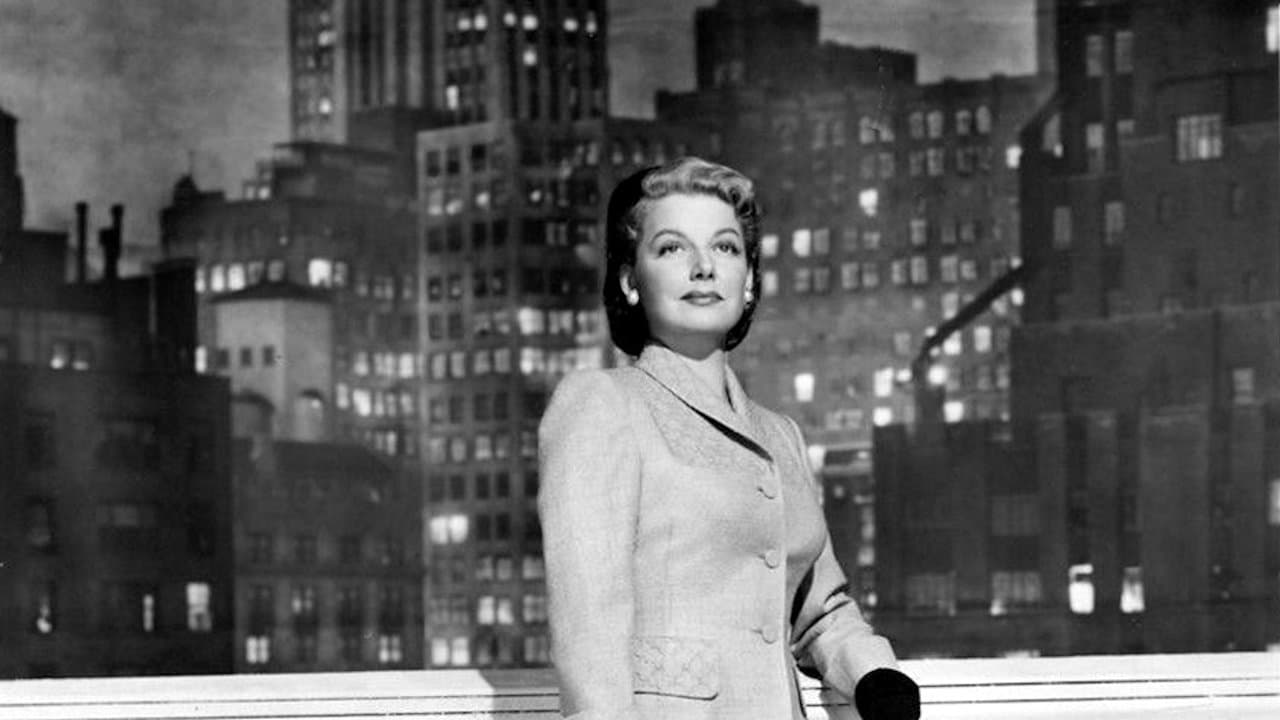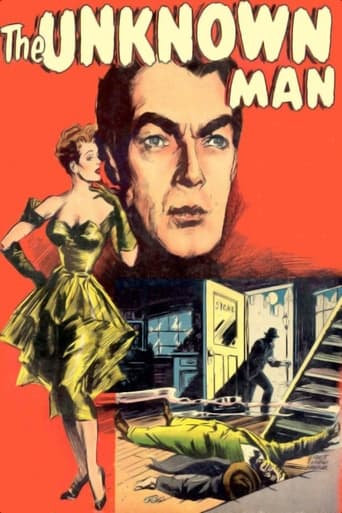

Some things I liked some I did not.
... View MoreBeautiful, moving film.
... View MoreWhat a freaking movie. So many twists and turns. Absolutely intense from start to finish.
... View MoreThe story-telling is good with flashbacks.The film is both funny and heartbreaking. You smile in a scene and get a soulcrushing revelation in the next.
... View MoreThose early scenes between DA Sullivan and attorney Pidgeon are beautifully played. Note how subtly a competitive sense is conveyed, along with professional respect and perhaps mild dislike. So when Pidgeon decides to take Wallchek's (Braselle) case and challenge the DA, we understand why. Pidgeon is excellent throughout. His resonant voice and dignified bearing suggest that Old Testament worship of the law that drives Brad's character. Ditto Sullivan's first-rate performance. Nonetheless, his DA takes a more pragmatic view of the law, one that's importantly tempered by reality.Too bad the rest of the movie doesn't measure up. Crime dramas whether noir or procedure were simply not MGM's strong suit. LB Mayer's philosophy was escapism and celebrity stars, and not even new production chief Dore Schary's background at gritty RKO could modify the entrenched tradition. Director Thorpe was one of Mayer's favorites because of his ability to complete projects under-budget. Unfortunately, that style-less efficiency is on bland display here as the scenes unfold in strictly mechanical fashion. Crucially, there are no visual (noirish) counterparts to Pidgeon's moral dilemma. Then too, the screenplay apes fashion of the day by needlessly involving a "Mr. Big" as the invisible mastermind behind crime in the city. Thus, what starts out as a very real legal dilemma—exonerating a guilty man and what to do about it—evolves into a contrived storyline, not helped by a highly contrived climax in the prison cell. That compelling premise really does deserve a more thoughtful, less tricky, development than what it gets here. Then too, once you think about it, I'm not sure how well the scales of justice actually balance, contrary to what the final scene appears to imply. Anyway, two fine performances are largely wasted in what another reviewer aptly calls a minor film.
... View MoreWalter Pidgeon is Braley Mason, a civil attorney who takes on a criminal case in "The Unknown Man," a 1951 film also starring Ann Harding, Barry Sullivan, Keefe Braselle, and Richard Anderson. A great believer in justice, Pidgeon accepts a pro bono case defending a young man, Rudi Walchek (Braselle) accused of murder and gets him acquitted. Shortly afterward, he realizes that the man is guilty and was extorting protection money from his victim as well as other shopkeepers in the neighborhood. He is advised by the DA (Sullivan) that Rudi is small change, that to wipe out the organized crime, one has to find the top man. Mason finds the top man, and is faced with a dilemma."The Unknown Man" is a small, black and white film that manages to hold the viewer's interest with its various plot twists, though the plot is somewhat contrived. It's really the story of a good man seeking his god, justice, and what he is willing to do in order to attain it. And that's the most contrived part of all. I suppose there was a time before O.J., the Menendez Brothers, etc., etc., when people believed in justice and the integrity of attorneys. For this viewer anyway, those days are long over.Walter Pidgeon does an excellent job -- his handsome, elegant demeanor and declamatory voice show us a successful, confident man but also a deeply caring one. Pidgeon had a magnificent career spanning 60 years but never really rose to superstardom. He was a solid actor who could play just about anything and did. It may be because by the time he was getting leads, he was well into his thirties and missed being a matinée idol; or it could be he lacked that certain something; or that he was typed early on as second lead to a big female star like Greer Garson. Hard to say. He gives an honest and touching performance here.Very good movie with good performances.
... View MoreI've seen this film criticized with the statement, "If you can get past the moralizing..." That misses the point. Moralizing is in the conscience of the beholder, as it were. This is a decent film with a standard murder mystery, but with a distinct twist that surfaces midway through. The resolution leaves the viewer wondering, "What would I have done in this position?" And I have to believe that's exactly what the filmmaker intended. To that end, and to the end of entertaining the audience, the film succeeds. I also like the way that the violence is never on stage, but just off camera. We know what has just happened; it's just not served up in front of us, then rubbed in our faces, as it would be today with contemporary blood and gore dressing. Besides, the violence is not the point. The point is the protagonist's moral dilemma, which is cleverly, albeit disturbingly, resolved.
... View MoreHopelessly hamstrung by the requirements of the Production Code, The Unknown Man is a rather nasty piece of filmmaking, when you come down to it. Walter Pidgeon is fine as the defense lawyer who mistakenly frees a young killer, played with fresh faced ineptitude by Keefe Braselle, but the machinations set into motion by Pidgeon's fatal encounter with the slimy Crime Commission bigwig, played brilliantly by Eduard Franz, are hopelessly unrealistic. That leads some to conclude this is an entry in the noir cycle, but it plays more like a police procedural, with police captain Barry Sullivan successfully sniffing out the truth. Besides Franz and Pidgeon, the acting highlights are provided by Konstantin Shayne as an elderly shopkeeper victimized by shakedown men. Ultimately, though, The Unknown Man is a lesson in Old Testament justice, with murderers and their victims filling in as Sunday School sermon illustrations. If you can get over the moralizing, however, this is a decent minor picture.
... View More